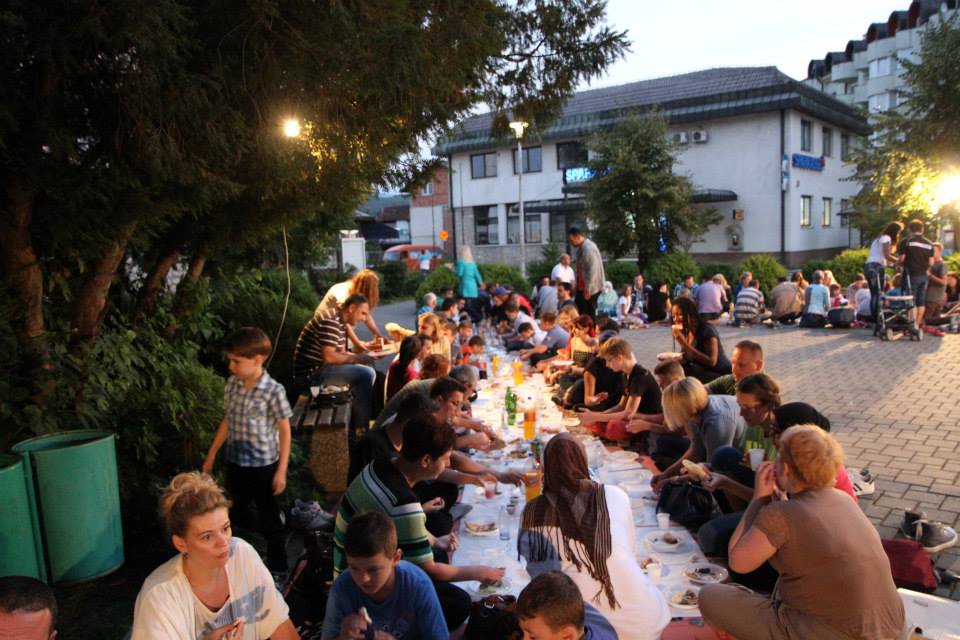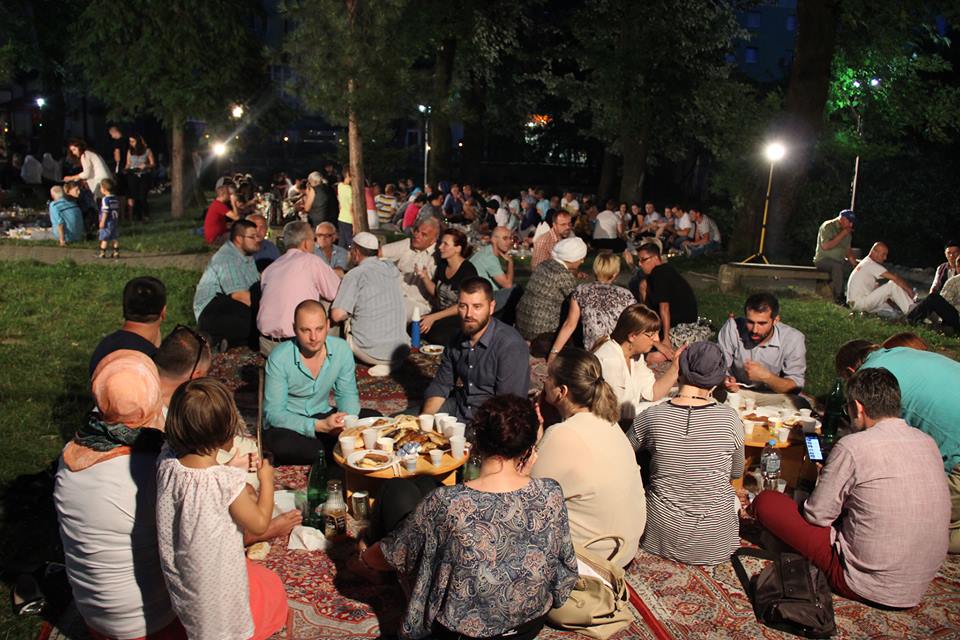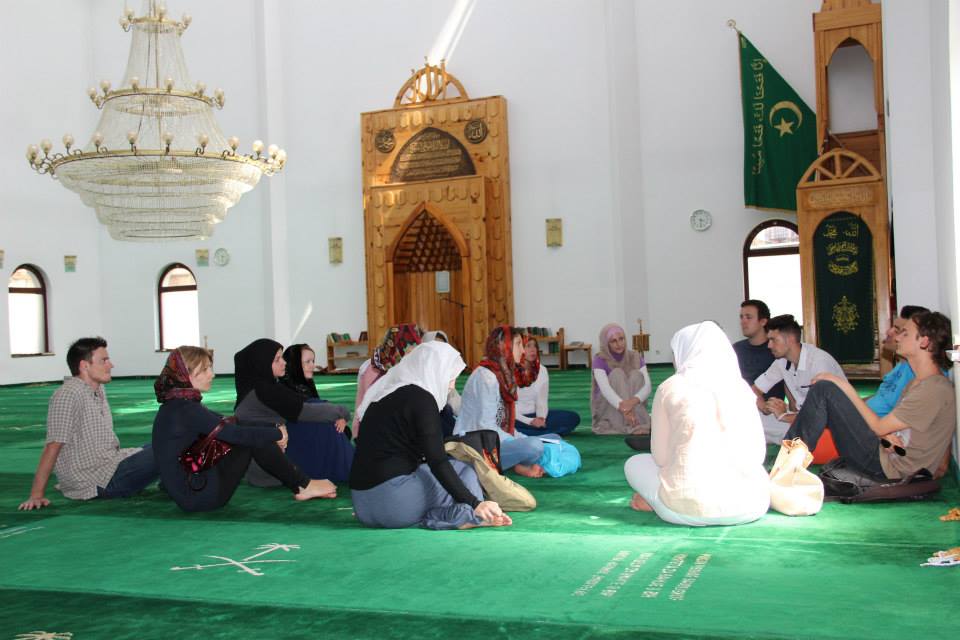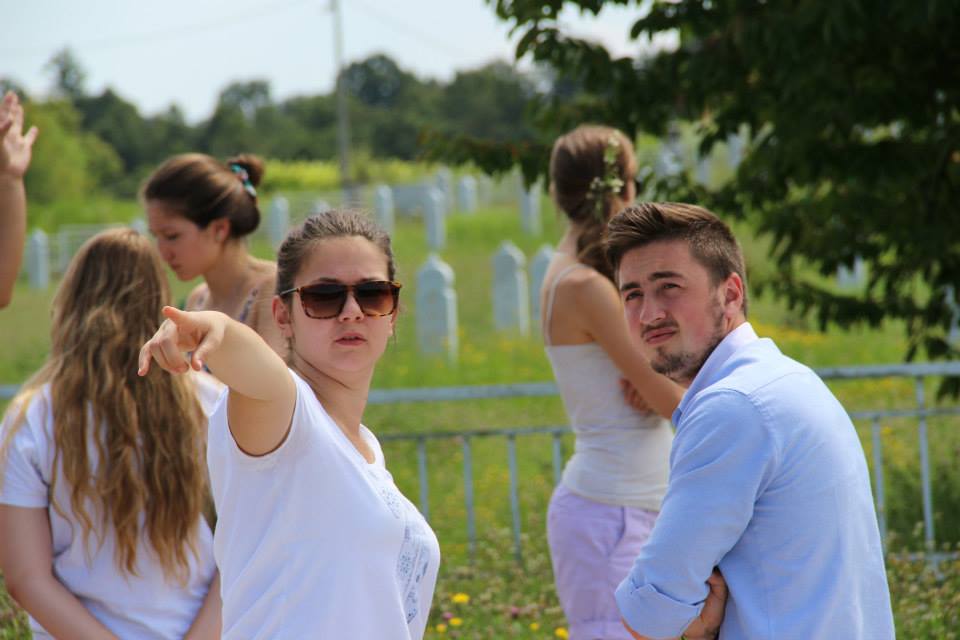Interfaith Peace Work
Interreligious Dialogue, School & Events
Center for Peacebuilding engages diverse faith communities and individuals to help rebuild the trust destroyed by the 1992-1995 war. Through education, dialogue, and trauma healing, CIM works to create a sense of tolerance and understanding among people of different faiths. Our work includes, but is not limited to:
- Interreligious Dialogue
- Interreligious Iftar
- Interreligious School
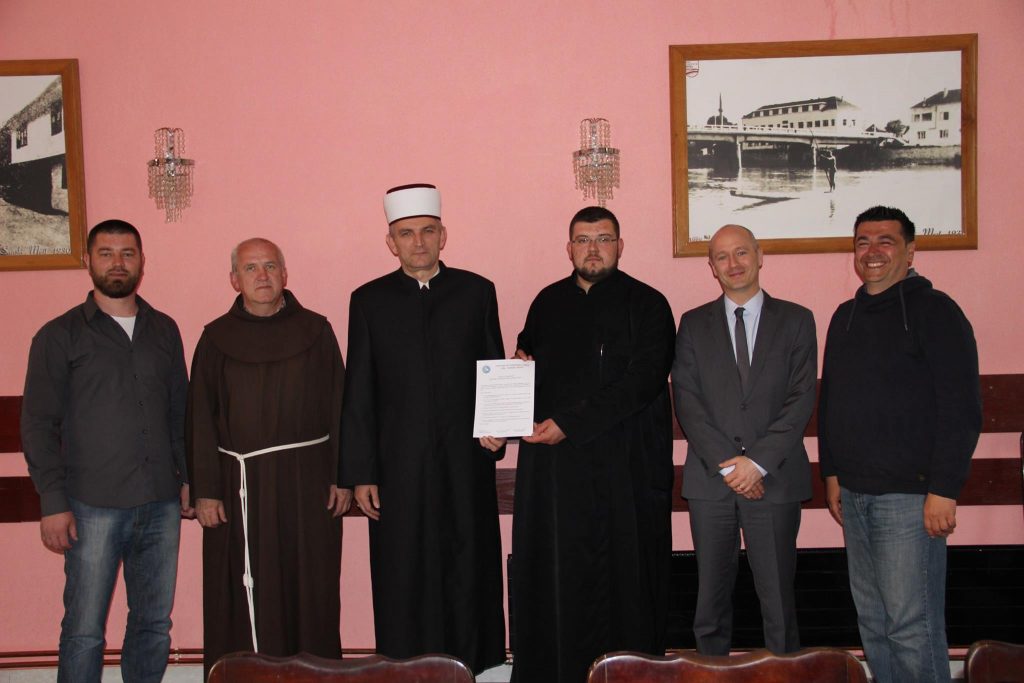
Interreligious Dialogue
Central to our work is the belief that the practice of structured dialogue can transform a culture of divisive debate. It is imperative that Bosnians of all ethnicities are able to talk in an environment without winners and losers, where common understanding is the ultimate goal. Dialogue can heal the deepest wounds and encourage true reconciliation with the past. In March 2010 we began organizing meetings between Sanski Most’s various religious leaders. On March 20, 2010, for the first time in the city’s history, these leaders (representing the Islamic, Catholic, Orthodox, and Protestant faiths) met public to present resources for peacebuiding in their respective religious traditions. This meeting set a positive public precedent for constructive inter-religious and inter-ethnic interaction in Sanski Most. In September 2010, these leaders met again to discuss concrete ways to work together to promote peace and coexistence. In the meeting they expressed their support for creating local interreligious council that would promote community service activities implemented with interriligious cooperation, peace education in local religious institutions, and interreligious dialogue.
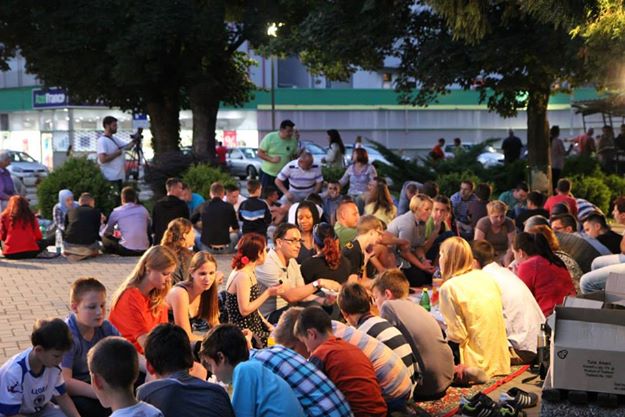
Interreligious Iftar
As part of our interreligious dialogue efforts, CIM started organising an annual public iftar in Sanski Most. The aim was to bring together locals from all ethnic and religious backgrounds to invite them to join a Muslim tradition. Sharing evening meals during the month of Ramadan is an important tradition for Muslims in the local community, one which is often done with close family, friends, and neighbours.
Since 2010, our annual iftar event has grown. From being funded just by CIM and having under 50 people coming together in a local park, we have managed to organise this for 400 participants, solely on donations from the local community. In the beginning CIM did outreach and tried to encourage locals to make in-kind donations, however in 2014, the local community approached CIM and we had more than enough food, drinks, and equipment to organise the meal. Around 50 local volunteers helped set up and clean up after the event.
Interreligious School
In 2013 CIM staff began a new project addressing the mistrust about “the other’s” religion through an Interreligious school. Through education about the four faiths present in CIM’s local community of Sanski Most (Islam, Orthodox Christianity, Catholicism, and Protestantism), individuals involved in the project will reduce their prejudices and increase their appreciation for both the peace-loving aspects shared by all religions as well as unique aspects special to one faith.
Initially planned for 20 high school-aged students from Sanski Most, so much interest was expressed by other community members that CIM decided to open the project to a broader group of individuals. The planning phase of the project occurred during the summer of 2013 – CIM has already conducted an initial survey to measure the attitudes and behaviors of individuals in Sanski Most regarding different faiths and, in response to our results, has developed the project curriculum accordingly.
The school classes will be held in earnest from fall 2013 through fall 2016, with a new group of individuals taking part each year. Each religious leader will teach once per month for the whole year on two themes: (1) the basics and core of their faith traditions and (2) their religions and peace (e.g. examples of peacebuilding and potential/resources for peace in their traditions). At the end of Interreligious School CIM will publish an electronic manual (curriculum) online. The extensive discussion and consideration of their own and other religious traditions will bring dozens of students to a better understanding of and consequent greater respect for each other.


